The race for artificial intelligence-powered agents is accelerating the transformation of professions worldwide. Developers kicked off the week with Microsoft’s annual Build software developer conference in Seattle, Washington, which saw it unveil its vision for AI agents, followed swiftly by Google’s I/O event, where smart assistants and real-time translation services stole the show.
The fierce competition among tech giants has expedited the integration of intelligent AI agents into daily life. AI assistants, which enhance efficiency in every profession and industry, dominated the headlines this past week.
On Monday, Microsoft attracted attention at the Build 2025 developer conference by announcing its vision for an “open agentic web” and unveiling new AI-powered tools and technologies. Key highlights from the event included GitHub Copilot evolving into an AI agent, the advanced capabilities of Copilot Studio, the expansion of the Azure AI Foundry platform, and the integration of Grok models developed by Elon Musk’s xAI.
Following Microsoft’s announcement, which emphasized the transformation of professions from education to software engineering to health care, Google grabbed the spotlight the next day with its new AI assistants and live translation services.
Microsoft CEO Satya Nadella emphasized that AI will not only enhance individual productivity but also transform the way teams collaborate. “AI is completely redefining how we code, how we conduct business, and how we interact with the web,” he said, underscoring the future shaped around open and interoperable agents.
Nadella also highlighted that these advancements are part of Microsoft’s strategy to empower developers and drive progress through open technologies.
Future of software engineering
At the Microsoft Build 2025 event, the company emphasized more independent and open-source opportunities for software developers, while Google focused more on highlighting the success of its own products.
OpenAI CEO Sam Altman joined the event virtually to discuss the impact of AI technologies on software engineering. He pointed out that AI models are becoming smarter, faster and more reliable, enabling developers to manage larger workloads with AI agents.
Additionally, Altman shared that OpenAI’s future focus includes developing models that autonomously handle multimodality, tool usage and human-computer interaction. His remarks indicate that software engineers should pay close attention to these advancements as they evolve in their field.
Elon Musk’s AI
At the Build 2025 event, it was announced that Grok models, developed by Musk’s AI company xAI, would be made available on the Microsoft Azure platform. This collaboration expands Microsoft’s Azure AI Foundry platform, granting developers access to xAI’s Grok 3 and Grok 3 Mini models. The move is seen as part of Microsoft’s strategy to diversify its AI partnerships beyond OpenAI and position Azure as a multi-model hosting platform.
Despite rapid advancements in AI, many had expected the “Year of AI Agents” to yield more tangible outcomes. Microsoft’s comprehensive announcements signal that AI technologies will become more applicable not only in the developer community but also in corporate environments. Moreover, the company’s emphasis on open-source projects reinforces an industry-wide trend.
The Microsoft Build 2025 event is being regarded as a significant turning point for the future of AI technologies and the strategic moves of major tech firms.
AI supercomputer in 19 days
At the event, Nvidia CEO Jensen Huang described the creation of the “Colossus” supercomputer – assembled by Musk’s xAI in just 19 days using 100,000 Nvidia H100 GPUs – as an “extraordinary” achievement.
Huang emphasized that such a supercomputer would typically take years to build, praising what he described as Musk’s unique engineering skills and ability to manage large-scale systems.
These developments highlight the intensifying competition in the AI sector, where major tech companies are leveraging strategic collaborations to gain an edge. Microsoft’s partnership with xAI reinforces Azure’s flexibility and ability to support diverse AI models, while Nvidia’s contributions strengthen the technical infrastructure behind such ambitious projects.
Train your own digital agent for any profession
From doctors to journalists, musicians to lawyers, every profession will soon integrate digital agents into daily workflows. The best part? No coding skills are needed to create them. Professionals will first build a digital twin using their data, and their artificial intelligence assistant will learn and evolve through real-world interactions.
As AI continues to revolutionize industries, digital agents and assistants are becoming fundamental tools for businesses and individuals alike. The competition among tech giants is intensifying, with companies racing to provide the best AI agent development tools.
Microsoft’s “agentic web” vision marks the beginning of a digital revolution, set to redefine professional routines and workflows. How will AI agents transform different careers? What kind of data feeds do they require? How will professionals maintain control over their AI assistants?

The Microsoft Build event has brought together industry experts and software developers to answer all these questions.
AI moves beyond answers
Modern AI assistants do far more than provide information – they now plan, execute tasks, process data and even function like colleagues. Microsoft’s agentic web concept is at the heart of this shift, enabling professionals to design custom AI agents tailored to their roles through the Agentic Factory.
Creating a fully personalized AI assistant is no longer a complex task. Users teach their digital twin through their daily actions and interactions, enriching its capabilities with data from emails, voice notes in meetings and other professional workflows.
Step-by-step development
Agentic web refers to AI-driven agents that don’t just generate content but also take action, recommend decisions and represent users intelligently. Spearheaded by Microsoft, this new era combines large language models (LLMs) with corporate data, personal habits and work processes, enabling professionals to maintain a personalized digital twin that works alongside them.
This shift introduces “AI diplomacy” in the professional world, allowing every individual to train and refine their own AI agent. The question is no longer, “Will AI take our jobs?” Instead, it’s about how individuals can leverage AI to enhance their work.
Agentic Factory enables professionals to create their own digital agents without coding. The process follows six key steps: defining the role (e.g., customer report assistant), identifying data sources (Google Drive, Outlook, internal corporate data), writing prompts and task workflows, setting security and authorization parameters, deployment and testing, and real-time tracking and updates.
Google’s AI-powered tools transform communication, creativity
At its I/O 2025 conference, Google captivated developers and audiences by unveiling live translation services through Google Meet, enabling seamless multilingual conversations. Alongside this breakthrough, the tech giant introduced a suite of AI-powered tools designed for musicians, doctors, video editors and architects.
Google I/O 2025 underscored the integration of artificial intelligence into everyday life, offering innovations that enhance user experience while opening new doors for developers. Among the most widely discussed and shared features at the event was Google Meet’s real-time voice translation tool, which enables fluid communication between speakers of different languages.

The new AI-driven translation feature instantly converts conversations into another language while preserving the speaker’s tone, emphasis and vocal expressions, providing a more natural communication experience.
Instant translation
Currently, the tool supports English and Spanish, allowing for bidirectional translation. In the coming weeks, Google plans to expand the feature to include Italian, German and Portuguese.
This service is available in beta exclusively for users subscribed to Google AI Pro and AI Ultra plans. The advanced translation capabilities are powered by Google’s Gemini AI model, which analyzes speech patterns in real time, ensuring accurate and efficient translations while maintaining the speaker’s natural tone and flow.
New search mode
Beyond translation tools, Google revealed groundbreaking AI-powered solutions for content creators. One major addition is AI Mode, now integrated into Google Search, revolutionizing the way users interact with online content.
This mode leverages Gemini 2.5 Pro, providing natural, conversational responses that mimic human-like dialogue. Additionally, the Deep Search feature offers in-depth research capabilities, catering to users conducting extensive investigations or analysis.
With AI enhancements, users can now shop and make reservations directly from search results.
New models, tools
At I/O 2025, Google unveiled two new AI models – Gemini 2.5 Pro and Gemini Flash – designed to supercharge AI-powered experiences.
Gemini 2.5 Pro introduces a Deep Think mode, optimizing performance for complex problem-solving.
The company also launched two new AI subscription plans, providing expanded access to advanced features.
Additionally, it introduced cutting-edge AI tools for creative industries. These include Veo 3, an AI-powered video and audio generator capable of creating high-quality content from text prompts, Imagen 4, a sophisticated AI image generator, producing highly detailed and realistic visuals, and Flow, a film-making application leveraging AI, allowing users to create short films from text and images.
Türk Telekom pushes boundaries with Wi-Fi 7 mesh speeds
One of Türkiye’s leading telecoms and technology companies, Türk Telekom has set a new benchmark for next-generation wireless connectivity, achieving speeds exceeding 10 Gbps in real-world testing of Wi-Fi 7 mesh technology.
As one of the first operators worldwide to test Wi-Fi 7 in practical settings, Türk Telekom’s advancements signal a major leap in wireless performance standards.

Committed to enhancing user experience through innovative technology, Türk Telekom has spearheaded pioneering efforts in Wi-Fi 7 mesh technology. In collaboration with WBA and TP-Link, the company successfully conducted high-capacity data transfers across mesh-connected nodes using new-generation Wi-Fi solutions.
The trial demonstrated that Wi-Fi 7 technology can support speeds exceeding 10 Gbps, reinforcing its role as a reference-standard for future wireless connections. This performance proves that Wi-Fi 7 mesh networks can support high-resolution video streaming, industrial IoT solutions, augmented reality (AR)/virtual reality (VR) applications, gaming, and real-time communication platforms, all essential elements of modern technological ecosystems.
Innovative tech solutions
Zafer Orhan, deputy general manager in charge of network operations at Türk Telekom, highlighted the company’s commitment to digital transformation and next-generation connectivity.
“As Türkiye’s leader in digital transformation, we continue to take pioneering steps toward the technologies of the future. Digitalization is reshaping access needs across all aspects of life. We closely follow developments in communication technologies and collaborate with global partners to set industry standards,” Orhan stated.
Orhan emphasized that the WBA-TP-Link partnership resulted in record-breaking mesh network speeds and reaffirmed Türk Telekom’s dedication to innovation and cutting-edge infrastructure.
“With our robust infrastructure and leadership in connection technologies, we will continue to introduce our country to innovative solutions,” he added.






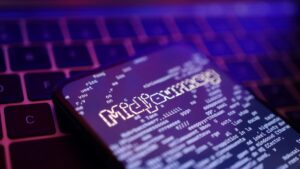








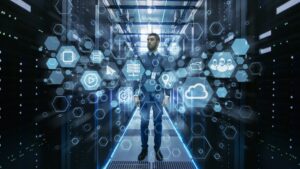
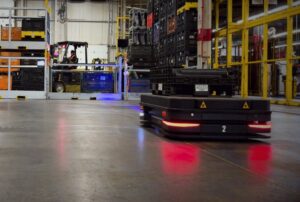
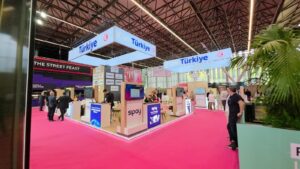
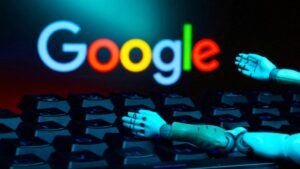












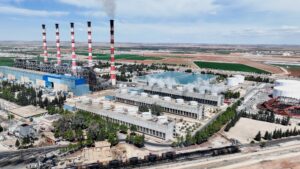






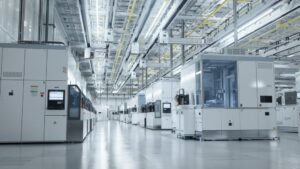
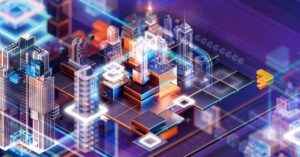
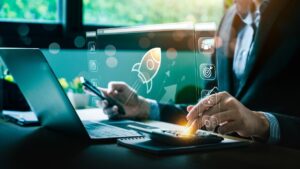




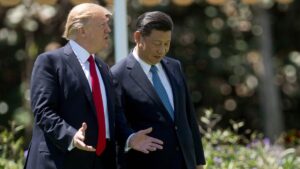
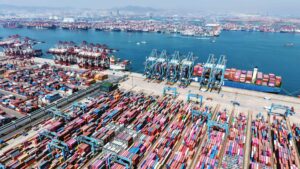
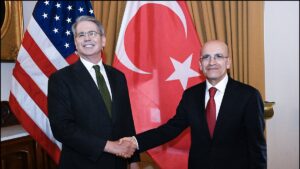
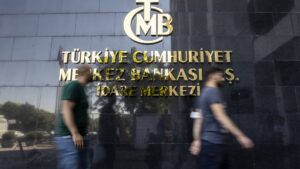



Be First to Comment